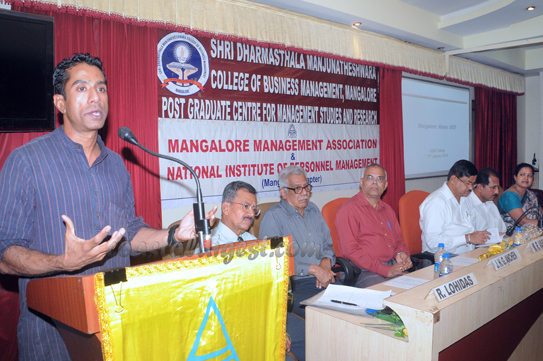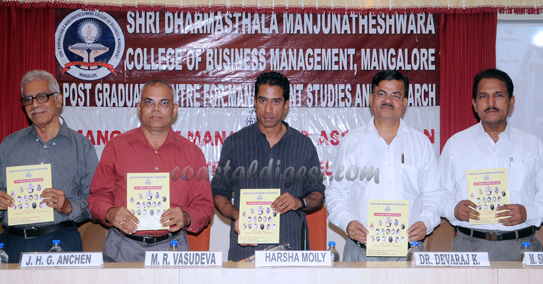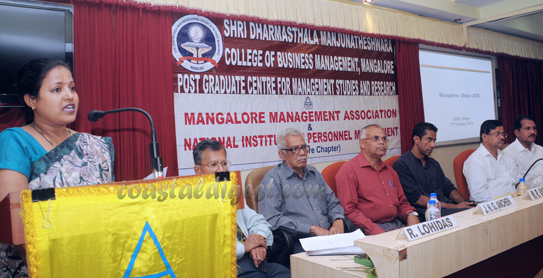Mangalore, Jan 18: Stressing on the need for economic development in Dakshina Kannada, CEO of Milkroute, Bangalore Harsha Moily said that it was important to have progressive political leadership, dynamic leadership, an efficient social sector and communal harmony in the district.
He was speaking on the topic 'Mangalore – Vision 2025' at a programme organised by Mangalore Management Association (MMA) and National Institute of Personnel Management (NIPM) at SDM Law College in the city on Friday.
“To impact the lives of roughly 2.2 million people, create prosperity in 354 villages, make productive use of 320 kms of coastline and 4.866 sq kms of undeveloped land and maintain the rich cultures and historic sites in Dakshina Kannada, we have to make the most of the resources available to make the district economically developed,” he said.
Six key pillars for economic development
He said that there were six strategic plans to act upon, for the realisation of the 'Vision 2025' for Mangalore city and the entire district, including achieving communal harmony, development of ports and fisheries sector, transformation of agriculture sectors, turning Mangalore into an IT hub, building physical and social infrastructure and implementation of government programmes.
It is critical to achieve communal harmony in the district, as high economic prosperity is possible only when there is a stable environment. It is also important to develop the ports and fisheries sector to enable creation of more jobs for youth. There should be focus on deployment of technology in agriculture and cultivation of crops such as paddy, arecanut, coconut and others with minimum water resources, he said.
“Mangalore has the potential to become an IT hub for which there should be increased pool of qualified manpower, power infrastructure and telecom services in the city. The district also needs to focus on increasing quality of primary and secondary schools, quality of healthcare and quality of roads. For effective implementation of governmental programmes, we need to strengthen gram panchayats and get rid of corruption at every level,” he said.
Vision statement
He said that his vision statement included the right to protection, participation in decision and policy-making and prosperity for every citizen in the district.
He also said that Mangalore had a lot of potential that was yet to be tapped, and the factor of utmost importance was the execution of the action plan.
Director of SDM PG Centre Dr Devaraj K made the presidential remarks.







Comments
You should take part in a contest for one of the greatest blogs on the net.
I'll recommend this website!
Also visit my web site - hearthstone hack gold: http://www.realhacks24.com/hearthstone-hack/
Add new comment